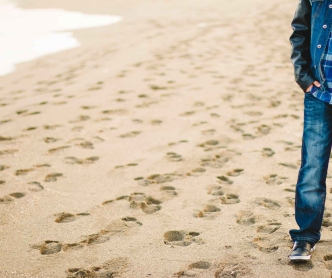Lately, the concreteness of what can be known has been on my mind. It’s something I’ve pondered on and off for many, many years. I will probably continue to contemplate the boundaries of knowledge for the rest of my life. Everyone (probably) knows what these questions are like. Why is there suffering and pain? How do you deal with that? What is the meaning of life? Is there a definitive purpose for each person’s life? Is there a god(s)?
 It’s probably no surprise then, that Buddhist philosophy has been capturing my attention lately. I throw in some Western esoteric readings for fun, too. Mostly alchemical-related texts lately, given my work on a tarot deck.
It’s probably no surprise then, that Buddhist philosophy has been capturing my attention lately. I throw in some Western esoteric readings for fun, too. Mostly alchemical-related texts lately, given my work on a tarot deck.
I just finished the book The Power of an Open Question: The Buddha’s Path to Freedom by Elizabeth Mattis-Namgyel. I heard a presentation by her during on online summit hosted by Shambala and liked how she presented her thoughts, so I picked up her book from the library. That was about four months ago. I wasn’t yet ready for what she had to say, I guess.
It is a very accessible book that made me think about how much I like to have a concrete answer. How much I try to put my thoughts into words and hope they stick so I can dismiss all the bigger questions of life as solved.
The past year has been particularly challenging, and this has pushed me to allow more questions in my life to remain open-ended and fully unanswerable. And, most importantly, to begin to contemplate these questions with an open mind to see what learning is there for me—as opposed to my previous somewhat dismissive attitude toward unanswerable questions. I’m starting to appreciate the subtlety and benefit of the small answers along the way.
 It’s not just the past year that has brought me to this place, though. It’s my whole life that’s been this path I’ve been walking. I went from a very strong, blind faith as a child and teen to a struggle to maintain that faith to a complete rejection of faith in anything. I’ve been wandering around for a number of years flirting with spiritual ideas from many viewpoints, not really embracing anything but going with the flow.
It’s not just the past year that has brought me to this place, though. It’s my whole life that’s been this path I’ve been walking. I went from a very strong, blind faith as a child and teen to a struggle to maintain that faith to a complete rejection of faith in anything. I’ve been wandering around for a number of years flirting with spiritual ideas from many viewpoints, not really embracing anything but going with the flow.
My study of tarot brings me back around to much of the Christian imagery of my early years and the culture in which I live. Undertaking to make my own deck and explain each card’s meaning has led me to wonder again about faith. What it means. Which brings me back to the timing being right for The Power of an Open Question. Here is a quote from the last page of the book:
Through [the Buddha’s] example, we learn that boundarylessness—this bigger way of being—is not some thing we can actually have faith in. It’s not objectifiable or findable. It’s not affirmable or deniable.
Faith is the mind of an open question. And when we ask an open question, we don’t get some kind of static answer. We don’t arrive at a final destination or reach a definite conclusion we can hold to and say, ‘That’s it!’ Faith is an experience, a way of being in life, that comes from a mind that does not reach conclusions about the world of things. So, in essence, to stay with this bigger way of being without turning away is what it means to walk in faith.”
This is a definition of faith I may be able to embrace. Not a faith in something, but a faith to keep walking with an open mind and open heart. One day at a time. One step at a time. With some leeway for all the times I’m bound to falter.
You can find other A to Z Challenge blogs here.

